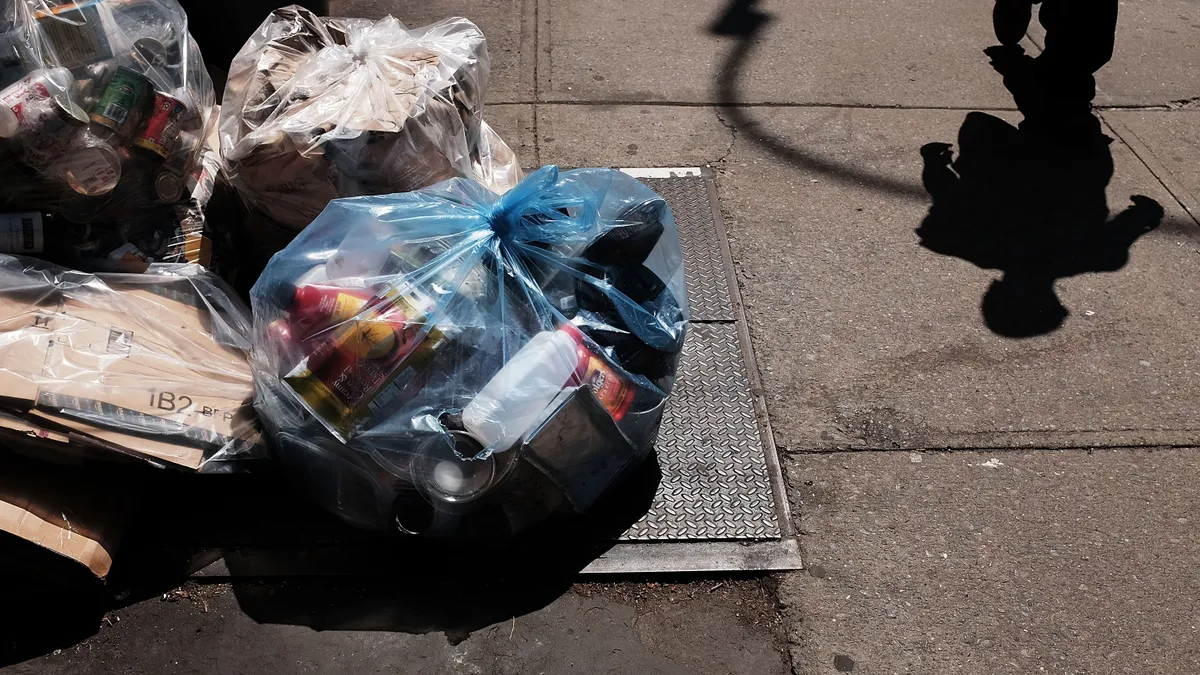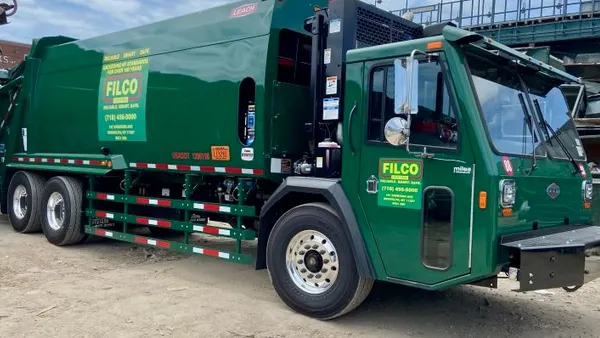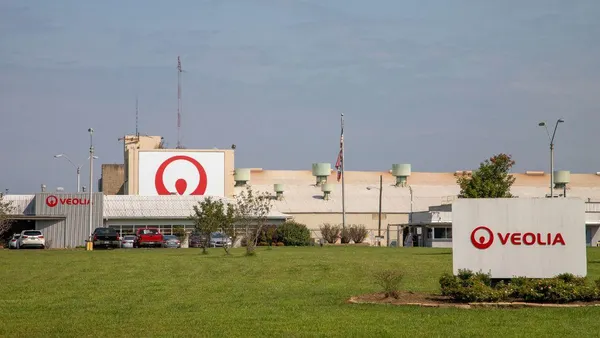The industry's publicly traded solid waste and recycling companies have marked one year since the pandemic's initial effects, and their first-quarter earnings are showing ongoing signs of economic recovery underway. Common discussion threads in this latest round of quarterly earnings calls included the following.
Disposal pricing expected to keep rising
After seeing somewhat less activity in this area during the depths of the pandemic, many companies now anticipate price increases will ramp back up as economic activity normalizes.
- Waste Management called out landfills, along with commercial and industrial collection, as the three most profitable areas of its business that have yet to fully recover. Chief Operating Officer John Morris said core pricing of 3.2% was "a strong result when you consider the impact of lower volumes related both to the pandemic and severe winter weather." CEO Jim Fish also anticipated landfill pricing will be a strength for the next couple quarters.
- Republic Services President Jon Vander Ark similarly predicted "you're going to see continued momentum on landfill pricing," in a quarter that saw its landfill volumes rise by 2.5% and its acquisition of 11 new disposal sites from Santek Waste Services. Given the high operating costs for landfills, Vander Ark said pricing would remain a priority.
- Casella Waste Systems saw a 3.5% increase in landfill price for the quarter, as tons remain down year over year. Its executives anticipate pricing will become even more favorable in the years ahead as Northeast disposal capacity tightens. CEO John Casella cited anticipated closures of landfills in parts of upstate New York and Long Island, as well as the pending closure of a refuse-derived fuel facility in Connecticut as creating "a lot of opportunity" for disposal pricing in the coming years.
- Covanta cited similar regional trends as favorable for the company's outlook. "Residential waste volumes remain robust, and our pricing continues to reflect the strength in our core disposal markets, where our position allows us to be very disciplined around re-contracting activity," said Chief Operating Officer Derek Veenhof. "As commercial volumes, including profile waste continue to build and normalize, we will have very good opportunities to realize further price growth despite our highly contracted profile."
ESG grows in importance
Companies have been asked for increasingly more details about their environmental, social and corporate governance (ESG) outlook, with many setting new or updated targets in recent years, and that discussion continued during the quarter.
- Waste Management announced the promotion of Tara Hemmer to chief sustainability officer, effective in July. Hemmer has been a key figure at the company's annual sustainability forums for multiple years, while also delivering a climate-themed keynote at the 2020 Global Waste Management Symposium and hosting multiple related virtual events in recent months.
- Landfill gas, which remains the industry's top liability when it comes to mitigating Scope 1 emissions, was a running theme following several recent announcements in the space and positive trends for RIN pricing. Many companies reported new landfill gas-to-energy projects are in the works – with a focus on creating renewable natural gas for the grid or for use in vehicle fuel – and medium-sized sites are a growing priority.
- Opinions varied slightly on the ideal financial model for these projects, including the role of any outside partner. Waste Management kept its options open, but said it can finance projects as needed. Republic's Vander Ark said "our predominant model going forward will be working with third parties" because it helps manage pricing volatility, and "we think that just gets us there faster." The CEOs of Waste Connections and GFL Environmental both cited upcoming opportunities to renegotiate contracts with third parties for such projects, including a look at revenue share agreements.
- While recycling remains a relatively small share of revenue for each company, they all saw positive effects from higher commodity prices and a multiyear shift to processing-fee-based contracts. Waste Management reported positive results from an average commodity value of $79 per ton, versus prior highs of $127 per ton, due in part to that change. Republic benefited from its average commodity price rising 75%, Waste Connections was positive about OCC prices coming in above the high end of its outlook, and GFL reported similar boosts.
Federal impacts on labor, M&A discussed
The industry's largest companies have been relatively quiet on the Biden administration so far. Like they did in prior earnings calls, multiple companies have said they can adapt to federal leadership changes as needed.
- One common theme was hiring challenges, with some executives sharing the opinion that federal stimulus checks and enhanced unemployment benefits are a headwind. "We recognize that labor inflation is going to be around. It's been 5%-ish for our non-exempts for a couple of years now," said Waste Management's Fish, "but we didn't anticipate this new competitor, being the government." Fish anticipates the observed effects will be temporary, potentially shifting by the third quarter.
- Another key area was the effect of potential changes in capital gains tax rates on M&A, with some saying it may drive further interest from sellers. Republic said it hadn't seen a notable increase in the pipeline, while GFL CEO Patrick Dovigi reported "an influx of calls" in recent weeks. Fish anticipated it's theoretically possible this could lower valuations, and Waste Connections projected the possibility of heightened activity in the near term. "If you’re a private owner, and you’re looking to get ahead of what could become a mid-to-high 50% capital gains rate in some states, you’re looking to get transactions done prior to year end," said CEO Worthing Jackman.
- As for the industry's relationship with the new administration so far, Fish said Waste Management has been engaged with the U.S. EPA as usual. "We do know that there are changes coming through the EPA down the pike, and we're prepared for those," he said, reiterating the idea that new regulations could lead to business opportunities. "I personally have not had any engagement with the new administration, nor did I have engagement with the last administration. I guess they don't value our opinion that much, but that's okay. We're happy to fly under the radar."










